Why is early pregnancy a matter for concern and why should professionals devote resources to study and follow up? What are the outcomes for young parents and their offspring?
Many studies have looked at various
aspects of early pregnancy. Long term case studies have been initiated in
England and Jamaica which have provided important information – these have
now reached a 20 year time span – a critical time for study of the ‘cycle’
of repetition.
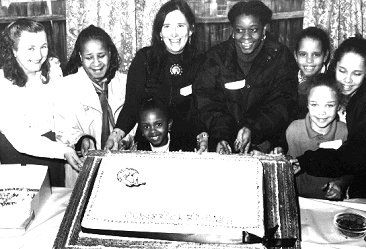
In this new millennium we can look and see that the focus for research has shifted but the problems and questions remain the same. The passage of time has brought perhaps a wider awareness of the dilemma of early childbearing but the degree of hardship and unresolved pain is a cause for sadness as is the recurrent inability of the statutory authorities to understand the issues, grasp the nettle and do something constructive about it.
HistoryTeen pregnancy is not a new phenomenon In the sixteen hundreds a popular song ‘The Trees They Grow High’ spoke of the teenage marriage of Lord Craighton ‘At the age of fourteen he was a married man, At the age of fifteen the father of a son At the age of sixteen his grave it was green And death put an end to his growing ... And throughout history there have been famous early births and teenage romances.
In 1113 King Stephen married Matilda at age 8 and she gave birth at 15;
Henry VIIth's mother was 14 when he was born and until the 16th century
the average age of marriage of English Queens was under 16.
NOTE THE GAP BETWEEN FIRST MARRIAGE AND FIRST CHILD
– AN INDICATION OF LATER MATURATION AND MARRIAGE BEFORE
FULL FERTILITY.
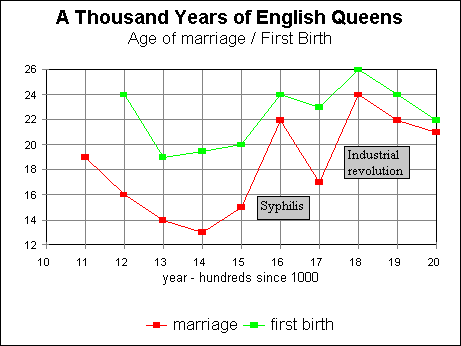
Contradictions and dual values abound in society literature and
religion. The Virgin Mary would have been about 12 when Jesus was born
and of course Shakespeare’s Juliet was 13. Nelle Gwynne was 14 when
having affair with Charles II
The study of teenage pregnancy has followed several phases :-
Moral Phase
Scientific Phase
Humanitarian Phase
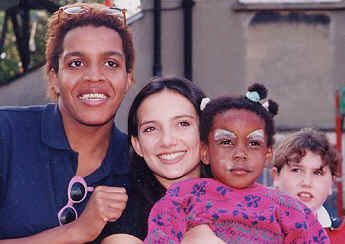
These have reflected the general society or cultural view of teenage pregnancy and thus the attitude of researchers. In some ways these evolving perspectives seemed to represent the process of the professionals working on their own issues and understanding their feelings regarding the matter rather than the process of providing help to affected youth and their families.
Moral PhaseTeenage sexuality was regarded as threatening and thus early pregnancy and ‘illegitimacy’ were feared as portents of immorality and the fall of society
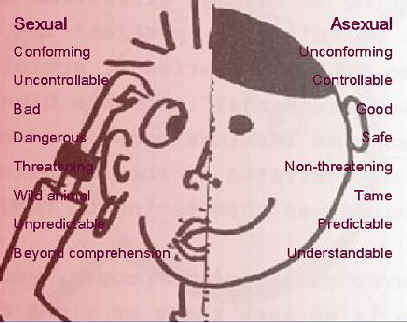
Early studies in the 1980s concentrated on the following issues
Why?’ do teenagers get pregnant ? Early statistical analyses compared teen fertility to that of older women With time this has shifted to comparisons across cultures and countries
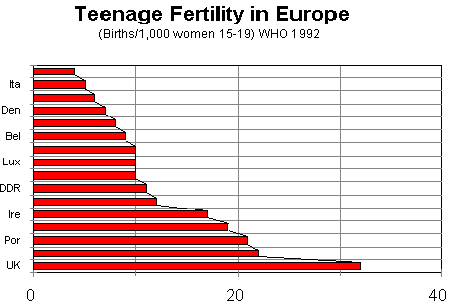
In America Guttmacher 1976 produced the famous pyramid diagram and the catch phrase ‘Eleven million teenagers – what can be done about the epidemic of teenage pregnancies’
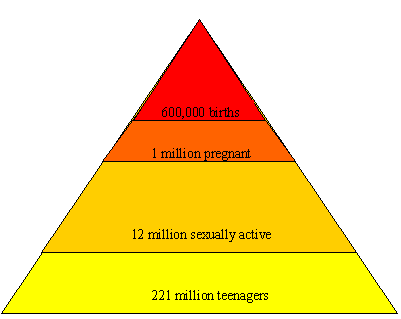
Unfortunately this ‘epidemic’ idea caught on which served to increase the fear of being overwhelmed by a flood of teen babies and pressure groups clamoured for a halt to promiscuity, sex education and contraceptive advice for youth.

